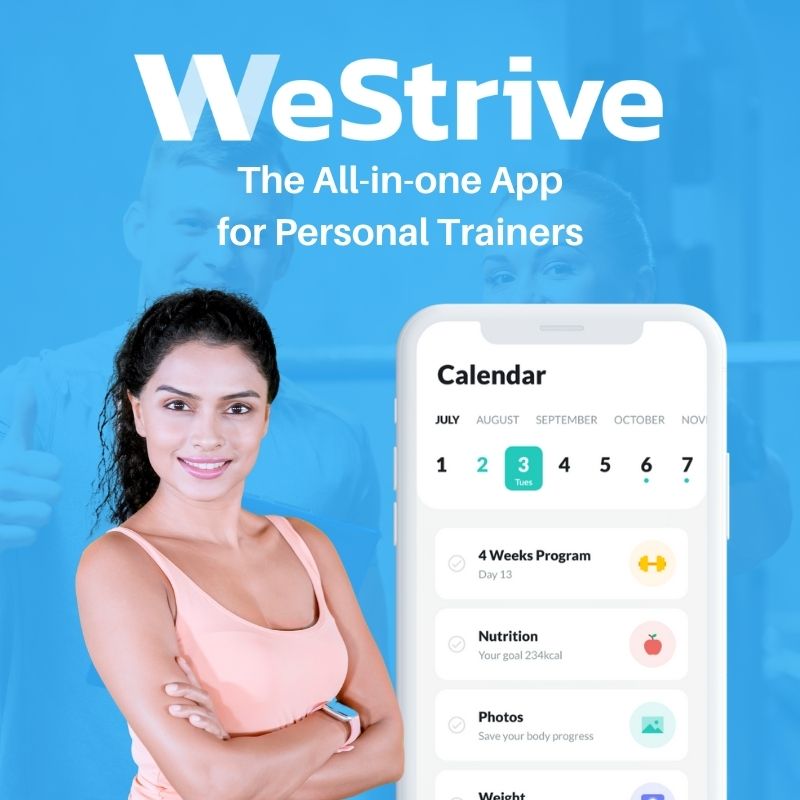|
FREE GUIDE: HOW TO LAUNCH AN ONLINE PERSONAL TRAINING BUSINESS
IN JUST 7 DAYS
✓ The new, better way of launching an online business
✓ The fastest way to create in irresistible offer ✓ A simple system to sell to clients who are interested |
|
Sometimes, career paths just lay themselves out before us. For fitness enthusiasts, that can mean turning their passion into a lucrative business. Fitness is an area where a large portion of the population struggles. One-third of adults over 35 in England are obese. However, when they look at a fit personal trainer, it's easy to expect that they have all the answers. This can make starting a personal training business an easy decision. However, there's a lot more to being a successful personal trainer than just looking the part. Keep reading for an in-depth look at successfully starting and running a personal training business. 1. Research the MarketFirst, you need to do your due diligence. That means investing some time in market research. What are the current fitness trends in your area? Are they expected to last or are they fads at best? Next, determine what the current demand is for personal trainers in your area. You also need to figure out the general costs and pricing models. You want to be competitive with your pricing but you also need to make a living. Finally, scope out your competition. Where will be the best area for starting a personal training business? You need to find a location that's great for exposure and accessibility, but not one where the fitness industry is saturated with other businesses. 2. Create a Business PlanOnce you've compiled your market research, it's time to create a business plan. This needs to be well thought out and thorough. Not only will your business plan serve as your guide to starting a personal training business, but it should also give you a realistic expectation of growth, income, and costs. Finally, the quality of your business plan may be the deciding factor in whether or not you get financed. This can be through private investors or a bank. 3. Get FinancedStarting a personal training business can be done in several ways. The three most common ways are working as a private contractor at a commercial gym, training out of your home, and building your gym. There are pros and cons to each. If you're starting a personal training business as a private contractor at a commercial gym, your costs will be relatively low. However, if you pay the gym £500 a month to train in their facility but only have a handful of clients, in the beginning, you might not make enough to even cover your contract agreement. You can also train your clients out of your home. Many personal trainers have a basement or garage gyms. You have to make sure you're doing things by the book and are legally operating a training business to avoid fines or getting shut down. You also have to cover the costs of setting up the home gym. Finally, there's the option of starting a personal training business by starting your own gym. This will be the most expensive and risky option, but possibly the most rewarding. Regardless of what route you choose to go, you'll likely need funding, especially with the second two options. You can look into getting business loans through banks and other lending agencies. However, if those fail, you can always look for private investors. 4. Get Certified, Licensed, and InsuredTo work legally in any industry, you have to have the proper credentials. The same is true of starting a personal training business. You need to make sure you're certified as a personal trainer, licensed as a business owner, and insured to protect yourself and your clients. Business insurance will protect you if a client wants to sue you for injuries or to cover client medical bills in the event of any accidents. You'll also want insurance to cover any incidents such as break-ins, fires, floods, or other disasters. 5. Identify Your Target AudienceAnother tip for people staring a personal training business is to consider your ideal clientele. If you can identify a target audience you can sell yourself to, it may be a good way to get a good foothold in the industry. Some options could include pregnant or recently pregnant women, people recovering from injuries or surgeries, or the elderly. However, this also includes targeting people who can afford your services. Personal training is typically expensive, which means you may want to avoid advertising toward people in the lower-income brackets. 6. Learn How to Market YourselfNext, successful business owners know how to market. This is one of the steepest learning curves when it comes to starting a personal training business. However, there are a lot of options and sources out there when it comes to marketing and one of them is something most of us are already comfortable with - social media. You can use social media organically and paid marketing to grow your following and attract new clients. You should also make sure you have a killer website and explore the following marketing techniques:
7. Listen to Your ClientsA good personal trainer knows how to listen as much as give direction. When starting a personal training business, understand that much of your job will be genuinely listening to your clients. However, this entails much more than their fitness woes and questions. Clients and personal trainers quickly build tight relationships where they discuss everyday life events, problems, and feelings. Just make sure you know where to draw the line to prevent misunderstandings. 8. Never Stop LearningFinally, if you're starting a personal training business, you need to understand that you're entering an industry that's always changing. There will always be new diets, workout fads, and weight-loss strategies to keep up with. This will mostly mean talking your clients out of implementing hardcore dieting techniques, but it's also important to stay up-to-date in your industry. Additionally, the more knowledgeable you are, the more useful you'll be to your clients and the better your credibility and reputation will be. Look into extra certifications such as nutrition classes, yoga certifications, etc. There are also plenty of excellent books that help inspire and educate personal trainers of all levels of experience. Starting a Personal Training Business?If you're planning on starting a personal training business, you'll want all the help you can get. Fortunately, you've come to the right place. The Institute of Personal Trainers provide tools, courses, and a community for people like you. Join today for unlimited access to everything we have to offer!
|
Our All In One Platform
Check out out all in one business & marketing platform for personal trainers!
WEBSITE BUILDER | FUNNELS |MEMBERSHIPS | SCHEDULING| EMAIL MARKETING| PAYMENTS| CRM | AI ASSISTANT | SURVEYS
Popular Articles
Trusted Partners
We work closely with some of the best service providers in the fitness industry.
Categories
All
|







